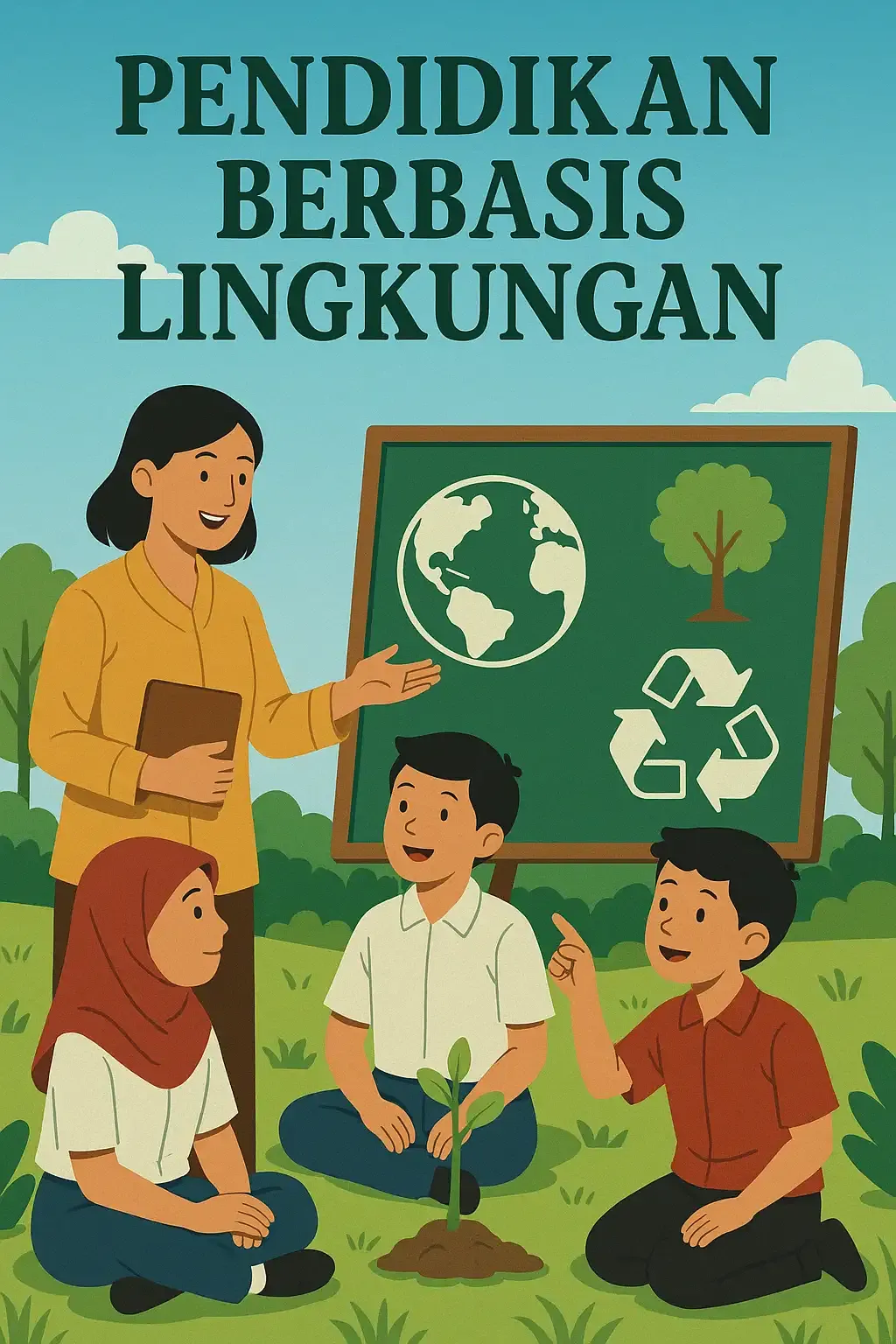Environmental based education is an educational approach designed to increase students’ awareness and understanding of the importance of protecting the environment and to create sustainable behavior. In an era of globalization and increasingly critical climate change, this form of education plays an important role in shaping a generation that cares about environmental issues, possesses the skills to tackle ecological challenges, and is able to create sustainable solutions.

Environmental based education does not only focus on theoretical aspects but also involves students in practical activities that encourage their active engagement in protecting the surrounding environment. This approach has the potential to produce a generation with strong concern for nature conservation and the ability to bring positive change for the Earth’s future.
Definition and Basic Principles of Environmental-Based Education
Environmental based education is a learning process that integrates knowledge, skills, and values related to the natural environment into both formal and non-formal education. Its purpose is to increase students’ awareness of human–environment interactions, introduce sustainability concepts, and shape responsible behavior in managing natural resources.
The basic principles of environmental based education include:
- Ecological Awareness: Fostering students’ awareness of ecosystems, biodiversity, and the impact of human activities on the environment.
- Knowledge-Based Action: Encouraging students to understand the consequences of their actions on the environment and apply this knowledge in daily life.
- Sustainability: Emphasizing the importance of decision-making that considers long-term impacts on the environment and future generations.
- Active Participation: Involving students not only in theoretical learning but also in direct conservation activities, such as tree planting, recycling, or waste management projects.
Why Is Environmental Based Education Important?
Addressing the Global Environmental Crisis
The world faces serious environmental challenges, including climate change, biodiversity loss, air and water pollution, and deforestation. Environmental-based education is a crucial step in confronting these issues. By providing students with in-depth understanding, it helps nurture a generation ready to act in saving the environment.
Building Environmental Awareness from an Early Age
This education helps instill the importance of protecting nature from a young age. When students understand the impact of human behavior on the environment, they are more likely to adopt eco-friendly habits in the future. Simple habits such as reducing single-use plastics, conserving water, and minimizing carbon footprints can be taught early, fostering environmentally conscious individuals.
Encouraging Sustainable Behavioral Change
Beyond theory, this education promotes real behavioral change. By introducing sustainable practices like recycling, organic farming, and renewable energy use, students can apply sustainability principles in daily life.
Read: Friends of Rhino Encourages the Development of Conservation Farmer Groups
Preparing a Responsible Future Generation
Today’s youth are tomorrow’s leaders and decision-makers. Environmental-based education trains students to become responsible leaders who understand sustainability and can make decisions considering long-term environmental impacts. It also encourages critical and creative thinking in solving complex environmental problems.
Enhancing Social Awareness and Global Solidarity
This education not only teaches local issues but also introduces students to global environmental challenges. They learn how environmental problems across the world are interconnected and how their local actions can contribute to global change. This fosters global solidarity and encourages participation in international environmental movements.
Implementation of Environmental-Based Education in Schools
-
Curriculum Integration
Environmental topics should be integrated across subjects like science, geography, biology, and even mathematics. For example, science classes can cover the water cycle, greenhouse effect, or carbon cycle; geography can examine deforestation or climate change impacts. Integration ensures students gain a comprehensive environmental understanding.
-
Sustainability-Oriented Extracurricular Activities
Schools can establish environmental clubs or nature groups. Through such activities, students engage in projects like school recycling programs, tree planting, or anti-plastic campaigns. These practical experiences allow them to learn while taking real action.
-
Using the Surrounding Environment as a Learning Resource
Taking students outside the classroom to observe local ecosystems, study flora and fauna, or participate in local conservation projects makes learning more tangible. Direct experiences connect classroom theory with real-world practice.
-
Collaboration with Environmental Institutions and Communities
Schools can partner with environmental organizations, NGOs, or local governments to implement programs. Internships, seminars, or participation in events like Earth Day expand students’ knowledge and create broader community awareness about environmental protection.
-
Use of Technology and Digital Resources
Technology can be an effective teaching tool. Students may use apps to track carbon footprints, manage waste, or calculate energy use. The internet also provides abundant resources on global issues like climate change, ocean pollution, or deforestation. Leveraging technology deepens students’ understanding of global environmental challenges.
Positive Impacts of Environmental-Based Education
- Environmental Awareness and Responsibility
Students develop stronger environmental sensitivity and become more motivated to take concrete action in protecting ecosystems and resources, at individual, community, and global levels. - Enhanced Critical Thinking and Problem-Solving Skills
This education pushes students to critically analyze complex environmental problems and design sustainable solutions. It strengthens their analytical and problem-solving skills, essential in today’s interconnected world. - Environmentally Friendly Behavioral Changes
One main goal is fostering eco-friendly lifestyles. Students often adopt habits such as conserving energy, saving water, recycling, and choosing sustainable products. These behavioral shifts contribute to global sustainability efforts. - Formation of Environmental Leaders
By instilling sustainability values and responsibility, this education helps shape future leaders who care about Earth’s future. Equipped with deep environmental understanding, they are prepared to act as change agents and make wise, long-term decisions.
Conclusion
Environmental based education plays a vital role in creating a caring and sustainable generation. By providing deep understanding of environmental issues and sustainability, it develops students’ awareness, skills, and responsibility to protect the planet.
Through curriculum integration, active participation in practical activities, and the use of technology and digital resources, this education fosters eco-friendly behavior and prepares future leaders to face global ecological challenges.
This form of education is not only an investment in students’ futures but also an investment in a greener, more sustainable planet.
References:
